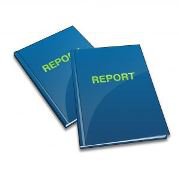Found total of 17 items and showing 12 items on page 1 of 2
R.U.M Talk - Getting Started with Deep Learning in R
27 Jun 2024 12:00 — 13:00
University Place, 5th Floor, Room 5.205
Registration is NOW CLOSED
The University of Manchester R User Group will be hosting a talk on Getting Started with Deep Learning in R.
Remote Advanced Scripting Workshop


Research IT Research Software engineers, Anja Le Blanc and Douglas Lowe recently ran a five day scripting workshop for NERC funded Environmental Science PhD students. Find out more about the workshop and the challenges of running such a workshop online
Virtual Environments Top Tips


Virtual Environments are a tool for isolating and tracking the software packages that you use for your work. Why is this useful to you? Let Research Software Engineers Douglas Lowe and Ann Gledson explain!
Hacking Fluids Around Structures on GPUs in Sheffield


Ian Hinder, Research Software Engineer (RSE) from Research IT recently attended a GPU Hackathon at the University of Sheffield. In this blog post he explains the outcomes of the event and the benefits of having research software engineers involved in research projects.
Want to use mobile apps in your research?


Come along to the Research IT club on the 4th of April to find out more about our new mobile application development service. If you want to use mobile apps in your research or are interested in having an app developed as part of a research grant application, then this is the Research IT Club for you!
Fortran Modernization Workshop April 2019


This Spring Research IT are hosting NAG who are running a two day practical hands-on workshop on Fortran Modernization on the 4th and 5th of April 2019.
Creating an Interactive Data Visualisation Tool for Click Data


As part of the Data Science Research Partnership between BBC R&D and the University of Manchester, one of our research software engineers (RSE), Josh Woodcock, spent 3 months working with BBC R&D to develop a way to visualise click data from an internal trial of the Cook-Along Kitchen Experience (CAKE). Involved in the project were Jonathan Carlton (PhD student with BBC R&D and University of Manchester), Andy Brown (BBC R&D), John Keane and Caroline Jay (University of Manchester).
Write Software as Part of Your Research?


Have you heard of Software Carpentry (SWC) and Data Carpentry (DC)? Both organisations have the aim of upskilling researchers so they can upgrade their computational and programming skills and their data analysis skills respectively through a series of workshops and “train the trainer” events.
Wanted: Volunteer Instructors for CodeFirst


Each semester CodeFirst runs free community courses aimed to provide women with technical and digital skills. The courses are taught by volunteer instructors all across the country and this October they are coming to the University of Manchester.
They are looking for a diverse range of enthusiastic volunteer instructors for the upcoming autumn sessions. Instructors come from a variety of cultural and coding backgrounds, and include computer science/technical postgraduates, company based professionals, freelance developers, and university staff. All instructors work on a voluntary basis.
Personal Responsibility in the Engineering of Academic Software


Software is often a critical component of scientific research. It can be part of the academic research methods used to produce research results, or it may be the actual academic research result. Software, however, has rarely been considered to be a citable artefact in its own right. With the advent of open-source software, artefact evaluation committees of conferences, and journals that include source code and running systems as part of the published supporting material, it is expected that software will increasingly be recognized as part of the academic process. It is therefore essential that the quality and sustainability of this software is accounted for.
Introducing Unix to Digital Humanities


Research IT members recently took part in a University of Manchester Digital Humanities workshop – “Introduction to data, the command line and automating tasks for the digital humanities”. The workshop was led by Jez Cope, Research Data Manager, University of Sheffield Library and support was provided by Gerard Capes and David Mawdsley (Research IT, UoM).
Introduction to Programming Workshop


Aimed at Social science researchers interested in coding, this workshop organised by the UK Data Service will provide researchers with a basic set of skills which are aimed at making the coding process more effective, less error prone and more maintainable.
